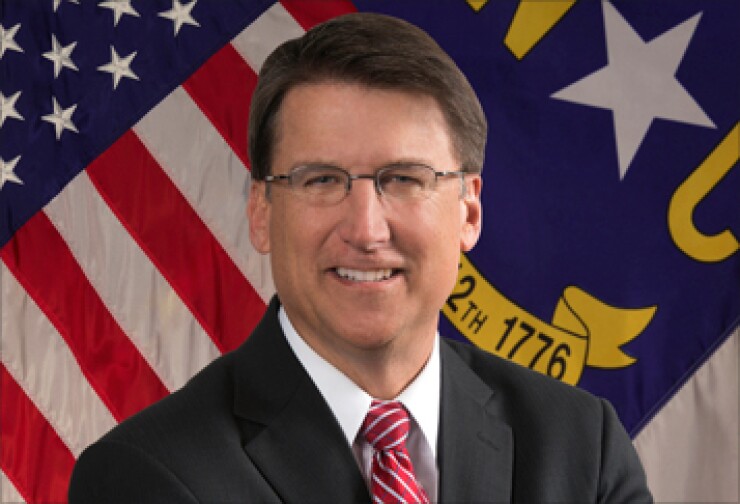
DALLAS — State and local officials told House committee members on Tuesday that they see chaos ahead if Congress doesn't quickly pass a long-term transportation bill.
The hearing was the House Transportation and Infrastructure Committee's second session on developing a multiyear highway and transit funding measure, which chairman Rep. Bill Shuster, R-Pa., said is the panel's top priority.
"I'm confident we'll get there," he said.
State transportation departments have no certainty of federal funding after the latest extension of funding for the Highway Trust Fund expires on May 31, said North Carolina Gov. Pat McCrory, who testified on behalf of the National Governors Association.
"The current highway funding legislation will expire in 10 weeks," he said. "States are in dire need of meaningful, long-term congressional action to avoid long-term dire consequences in our states."
Passage of a transportation bill before the end of May would avoid "chaos and crisis" while contractors are gearing up for the 2015 construction season, said Salt Lake City Mayor Ralph Baker, president of the National League of Cities.
Major highway and transit projects are sitting on the shelves in many states and others are being pushed back past the 2015 construction season because of questions over federal funding, said John Cox, director of the Wyoming Department of Transportation and president of the American Association of State Highway and Transportation Officials.
State highway departments need a fully funded, long-term transportation bill by the end of May, Cox said.
"The lack of a long-term surface transportation bill that provides a predictable stream of federal funding makes it nearly impossible for state [departments of transportation] to plan for large projects that need funding over multiple years," he said. "Construction companies cannot make the best use of their workforce or their equipment without certainty of funding."
The reality is that another short-term patch is likely when the current 10-month fix runs out at the end of May over disputes of how to fund a long-term bill, said Rep. Peter DeFazio, D-Ore., the ranking Democrat on the Transportation Committee. The temporary fix approved by Congress in July 2014 required a transfer into the HTF of $11 billion from the general fund, DeFazio said, and another extension will require an additional infusion.
"Just to get to the end of the fiscal year [Sept. 30] will require another $10 billion, and where is that going to come from?" he asked.
States have been strengthening their own transportation funding streams over the past few years but federal funding still accounts for a significant proportion of state transportation spending, McCrory said.
"The funding we have to invest in our transportation infrastructure to address these needs is insufficient," he said. "Using funds currently available, we will only be able to fund approximately 18% of transportation projects submitted by local planning organizations over the next 10 years."
McCrory said he and the governors association do not support devolution proposals that would eliminate the federal gas tax and turn all highway and transit funding over to the states.
"In fact, I believe the federal government plays an extremely strong role in ensuring our country is able to move goods and people throughout our 50 states," he said.
AASHTO, the American Road & Transportation Builders Association, and 36 other groups joined to send a letter to Congress to quash any attempts to revive devolution legislation, Cox said.
Proponents tried to attach a devolution amendment to 2014 HTF extension legislation but it was defeated.
The letter, which asked lawmakers to not cosponsor any devolution measures, said states would have to increase their gasoline taxes by an average of 23 cents by 2020 to make up for the lost federal funding.





